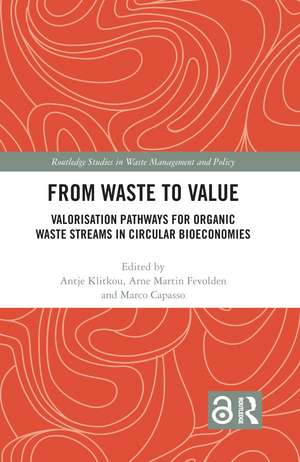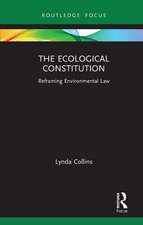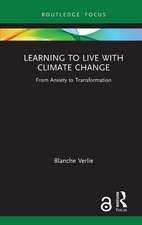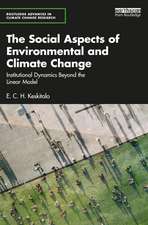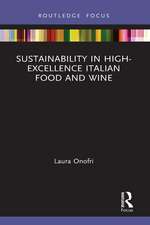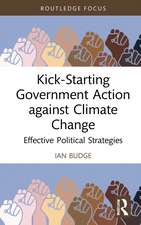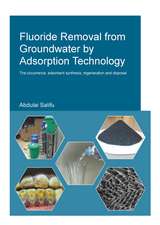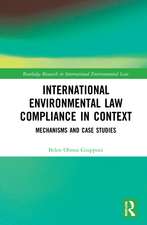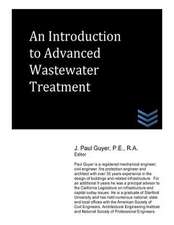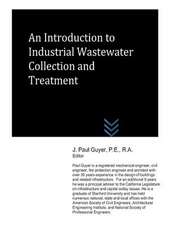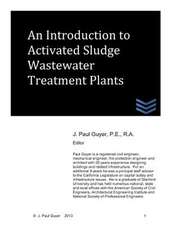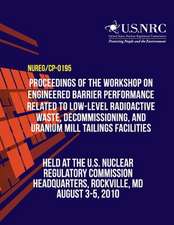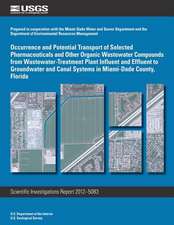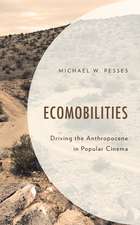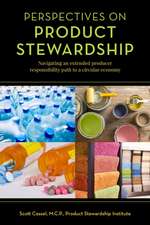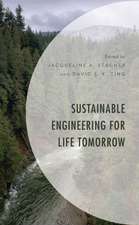From Waste to Value: Valorisation Pathways for Organic Waste Streams in Circular Bioeconomies: Routledge Studies in Waste Management and Policy
Editat de Antje Klitkou, Arne Martin Fevolden, Marco Capassoen Limba Engleză Hardback – 11 apr 2019
Organic waste streams from households and industry are becoming a valuable resource in today’s economies. Substances that have long represented a cost to companies and a burden for society are now becoming an asset. Waste products, such as leftover food, forest residues and animal carcasses, can be turned into valuable products such as biomaterials, biochemicals and biopharmaceuticals. Exploiting these waste resources is challenging, however. It requires that companies develop new technologies and that public authorities introduce new regulation and governance models.
This book helps policy-makers govern and regulate bio-based industries, and helps industry actors to identify and exploit new opportunities in the circular bioeconomy. Moreover, it provides important insights for all students and scholars concerned with renewable energy, sustainable development and climate change.
The Open Access version of this book, available at http://www.taylorfrancis.com, has been made available under a Creative Commons Attribution-Non Commercial-No Derivatives (CC-BY-NC-ND) 4.0 license.
| Toate formatele și edițiile | Preț | Express |
|---|---|---|
| Paperback (1) | 263.77 lei 6-8 săpt. | |
| Taylor & Francis – 18 dec 2020 | 263.77 lei 6-8 săpt. | |
| Hardback (1) | 1006.60 lei 6-8 săpt. | |
| Taylor & Francis – 11 apr 2019 | 1006.60 lei 6-8 săpt. |
Preț: 1006.60 lei
Preț vechi: 1227.57 lei
-18% Nou
Puncte Express: 1510
Preț estimativ în valută:
192.64€ • 200.37$ • 159.03£
192.64€ • 200.37$ • 159.03£
Carte tipărită la comandă
Livrare economică 14-28 aprilie
Preluare comenzi: 021 569.72.76
Specificații
ISBN-13: 9781138624979
ISBN-10: 1138624977
Pagini: 326
Ilustrații: 25 Line drawings, black and white; 30 Tables, black and white
Dimensiuni: 156 x 234 x 19 mm
Greutate: 0.64 kg
Ediția:1
Editura: Taylor & Francis
Colecția Routledge
Seria Routledge Studies in Waste Management and Policy
Locul publicării:Oxford, United Kingdom
ISBN-10: 1138624977
Pagini: 326
Ilustrații: 25 Line drawings, black and white; 30 Tables, black and white
Dimensiuni: 156 x 234 x 19 mm
Greutate: 0.64 kg
Ediția:1
Editura: Taylor & Francis
Colecția Routledge
Seria Routledge Studies in Waste Management and Policy
Locul publicării:Oxford, United Kingdom
Public țintă
PostgraduateCuprins
List of Figures
List of Tables
Preface
Chapter 1: Introduction
Antje Klitkou, Arne Martin Fevolden and Marco Capasso
Section I: Perspectives on the Bioeconomy
Chapter 2: What is the Bioeconomy?
Markus M. Bugge, Teis Hansen and Antje Klitkou
Chapter 3: Theoretical perspectives on Innovation for Waste Valorisation in the Bioeconomy
Markus M. Bugge, Simon Bolwig, Teis Hansen and Anne Nygaard Tanner
Section II: Sector Studies
Chapter 4: New path development for forest-based value creation in Norway
Antje Klitkou, Marco Capasso, Teis Hansen and Julia Szulecka
Chapter 5: Mission-oriented innovation in urban governance: Setting and solving problems in waste valorisation
Markus M. Bugge and Arne Martin Fevolden
Chapter 6: Beyond animal feed? The valorisation of brewers' spent grain
Simon Bolwig, Michael Spjelkavik Mark, Maaike Karlijn Happel and Andreas Brekke
Chapter 7: Meat processing and animal by-products: Industrial dynamics and institutional settings
Anne Nygaard Tanner and Nhat Strøm-Andersen
Chapter 8: New Pathways for Organic Waste in Land-based Farming of Salmon: The case of Norway and Denmark
Hilde Ness Sandvold, Jay Sterling Gregg and Dorothy Sutherland Olsen
Chapter 9: Valorisation of whey – A tale of two Nordic dairies
Simon Bolwig, Andreas Brekke, Louise Strange and Nhat Strøm-Andersen
Sector III: Cross-sectoral Perspectives
Chapter 10: What knowledge does the bioeconomy build upon?
Linn Meidell Dybdahl and Eric James Iversen
Chapter 11: Actors and innovators in the circular bioeconomy: An integrated empirical approach to studying organic waste stream innovators
Eric James Iversen, Marco Capasso and Kristoffer Rørstad
Section IV: Policy Implications
Chapter 12: Directionality and Diversity: Contending Policy Rationales in the Transition towards the Bioeconomy
Lisa Scordato, Markus M. Bugge and Arne Martin Fevolden
Chapter 13: Multi-Level Governance of Food Waste: Comparing Norway, Denmark and Sweden
Julia Szulecka, Nhat Strøm-Andersen, Lisa Scordato and Eili Skrivervik
Chapter 14: Life cycle assessment: A governance tool for transition towards a circular bioeconomy?
Andreas Brekke, Kari-Anne Lyng, Johanna Olofsson and Julia Szulecka
Chapter 15: Conclusions
Antje Klitkou, Arne Martin Fevolden and Marco Capasso
Notes on Contributors
Index
List of Tables
Preface
Chapter 1: Introduction
Antje Klitkou, Arne Martin Fevolden and Marco Capasso
Section I: Perspectives on the Bioeconomy
Chapter 2: What is the Bioeconomy?
Markus M. Bugge, Teis Hansen and Antje Klitkou
Chapter 3: Theoretical perspectives on Innovation for Waste Valorisation in the Bioeconomy
Markus M. Bugge, Simon Bolwig, Teis Hansen and Anne Nygaard Tanner
Section II: Sector Studies
Chapter 4: New path development for forest-based value creation in Norway
Antje Klitkou, Marco Capasso, Teis Hansen and Julia Szulecka
Chapter 5: Mission-oriented innovation in urban governance: Setting and solving problems in waste valorisation
Markus M. Bugge and Arne Martin Fevolden
Chapter 6: Beyond animal feed? The valorisation of brewers' spent grain
Simon Bolwig, Michael Spjelkavik Mark, Maaike Karlijn Happel and Andreas Brekke
Chapter 7: Meat processing and animal by-products: Industrial dynamics and institutional settings
Anne Nygaard Tanner and Nhat Strøm-Andersen
Chapter 8: New Pathways for Organic Waste in Land-based Farming of Salmon: The case of Norway and Denmark
Hilde Ness Sandvold, Jay Sterling Gregg and Dorothy Sutherland Olsen
Chapter 9: Valorisation of whey – A tale of two Nordic dairies
Simon Bolwig, Andreas Brekke, Louise Strange and Nhat Strøm-Andersen
Sector III: Cross-sectoral Perspectives
Chapter 10: What knowledge does the bioeconomy build upon?
Linn Meidell Dybdahl and Eric James Iversen
Chapter 11: Actors and innovators in the circular bioeconomy: An integrated empirical approach to studying organic waste stream innovators
Eric James Iversen, Marco Capasso and Kristoffer Rørstad
Section IV: Policy Implications
Chapter 12: Directionality and Diversity: Contending Policy Rationales in the Transition towards the Bioeconomy
Lisa Scordato, Markus M. Bugge and Arne Martin Fevolden
Chapter 13: Multi-Level Governance of Food Waste: Comparing Norway, Denmark and Sweden
Julia Szulecka, Nhat Strøm-Andersen, Lisa Scordato and Eili Skrivervik
Chapter 14: Life cycle assessment: A governance tool for transition towards a circular bioeconomy?
Andreas Brekke, Kari-Anne Lyng, Johanna Olofsson and Julia Szulecka
Chapter 15: Conclusions
Antje Klitkou, Arne Martin Fevolden and Marco Capasso
Notes on Contributors
Index
Notă biografică
Antje Klitkou has a PhD from Humboldt University, Berlin (1993). She has worked at the Nordic Institute for Studies in Innovation, Research and Education (NIFU), Oslo, Norway, since 2002, as Senior Researcher until 2014 and as Research Professor since 2014. She has research interests in research and innovation policy and the transition to a sustainable bioeconomy, energy and transport. She has been Project Coordinator for several international research projects, such as “SusValueWaste: Sustainable path creation for innovative value chains for organic waste products” (2015–19) on the transition to the bioeconomy, funded by the Research Council of Norway; “Technology opportunities in Nordic energy system transitions – TOP-NEST” (2011–15), funded by Nordic Energy Research; and “InnoDemo: Role of demonstration projects in innovation: Transition to sustainable energy and transport” (2013–15), funded by the Research Council of Norway. She has published several journal articles on bioeconomy topics.
Arne Martin Fevolden is a Senior Researcher at NIFU. He holds a Master’s degree (cand. polit) in Economic Sociology and a PhD (Dr. polit.) in Innovation Studies from the University of Oslo. Much of his earlier research was concerned with the development of the ICT (information and communications industry) and defence industries. His more recent research has looked at the controversies surrounding biofuels and at potential valorisation pathways for urban waste streams.
Marco Capasso is a Senior Researcher at NIFU. He has worked in the scientific fields of econometrics, economic geography and economics of innovation, and his research has been published in a wide variety of scientific journals, including Industrial and Corporate Change, International Statistical Review, Regional Studies and Small Business Economics. He is currently participating in the projects “Sustainable path creation for innovative value chains for organic waste products”, funded by the Research Council of Norway, and “Where does the green economy grow? The geography of Nordic sustainability transitions”, funded by the Nordic Green Growth Research and Innovation Programme.
Arne Martin Fevolden is a Senior Researcher at NIFU. He holds a Master’s degree (cand. polit) in Economic Sociology and a PhD (Dr. polit.) in Innovation Studies from the University of Oslo. Much of his earlier research was concerned with the development of the ICT (information and communications industry) and defence industries. His more recent research has looked at the controversies surrounding biofuels and at potential valorisation pathways for urban waste streams.
Marco Capasso is a Senior Researcher at NIFU. He has worked in the scientific fields of econometrics, economic geography and economics of innovation, and his research has been published in a wide variety of scientific journals, including Industrial and Corporate Change, International Statistical Review, Regional Studies and Small Business Economics. He is currently participating in the projects “Sustainable path creation for innovative value chains for organic waste products”, funded by the Research Council of Norway, and “Where does the green economy grow? The geography of Nordic sustainability transitions”, funded by the Nordic Green Growth Research and Innovation Programme.
Recenzii
"There is no shortage of commentary and analysis on the rise of the bioeconomy. Few contributions capture however the breadth and depth of its transformative dynamics as well as this book by Klitkou and colleagues. The book is a remarkable tour-de-force in providing a truly multi-perspectival account of the opportunities and challenges offered by the bioeconomy."
Prof. Lars Coenen, Melbourne Sustainable Society Institute, The University of Melbourne
Prof. Lars Coenen, Melbourne Sustainable Society Institute, The University of Melbourne
Descriere
From Waste to Value investigates how streams of organic waste and residues can be transformed into valuable products, to foster a transition towards a sustainable and circular bioeconomy. The studies are carried out within a cross-disciplinary framework, drawing on a diverse set of theoretical approaches and defining different valorisation
